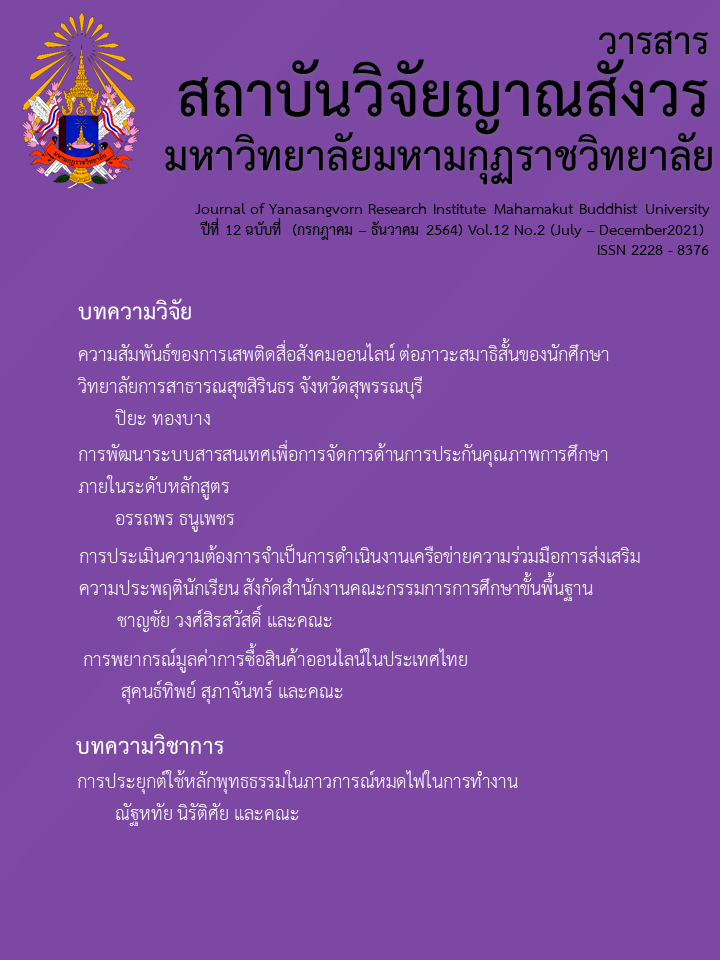SUSTAINABLE CULTURAL TOURISM MANAGEMENT BASED ON COMMUNITY: A CASE STUDY KUMPANGTHONGPATTANA COMMUNITY, PHASICHAROEN DISRICT, BANGKOK
Main Article Content
Abstract
The objectives of this research were to study the community identity that affects the success of cultural tourism, and the participatory management of leaders and community members who take responsibility for sustainable cultural tourism. The dataset has been collected by in-depth interviews with 38 persons of leaders, community members and tourists. The results showed that the traditional identity of a community has a direct positive effect on cultural tourism, especially having national laws to protect. All leaders and community members participate in management according to roles and responsibilities, respect for privacy, freedom, simplicity under the belief of artistic aesthetics, local culture, simple way of living and not aiming for profit thus leading to sustainable success in community tourism management. In order to promote sustainable cultural tourism, consideration must be given to the participation and responsibility of the leaders and members of the community and the understanding and protection of communities that exercise the legal power of the government. Therefore, it can be concluded that sustainable success in cultural tourism, management must create interactions between members of the community under acceptance, participation, and benefit. The visitors learn to understand and accept the roots of the community.
Article Details
References
บุญเลิศ จิตตั้งวัฒนา. (2548). การพัฒนาการท่องเที่ยวแบบยั่งยืน. กรุงเทพมหานคร: เพรสแอนด์ดีไซด์.
มาเรียม นิลพันธุ์. (2551). วิธีการวิจัยทางพฤติกรรมศาสตร์และสังคมศาสตร์. นครปฐม: คณะศึกษาศาสตร์ มหาวิทยาลัยศิลปากรวิทยาเขตพระราชวังสนามจันทร์นครปฐม.
สุจิตต์ วงษ์เทศ.(2545). กวีสยามนำเที่ยวกรุงเทพฯ. กรุงเทพมหานคร: พิฆเณศพริ้นท์ติ้ง เซ็นเตอร์.
Creswell, J. W., & Clark, V. L. P. (2017). Designing and conducting mixed methods research. Sage publications.
Choi, H. C., & Sirakaya, E. (2006). Sustainability indicators for managing community tourism. Tourism management, 27(6), 1274-1289.
Dodds, R., Ali, A. & Galaski, K. (2018). Mobilizing knowledge: determining key elements for success and pitfalls in developing community-based tourism. Current Issues in Tourism, 21(13), 1547-1568.
Fedorko, M. E., Hirsch, J. G., & Fried, B. (1971). Studies on transport of macromolecules and small particles across mesothelial cells of the mouse omentum: II. Kinetic features and metabolic requirements. Experimental cell research, 69(2), 313-323
Martin, D. C., & Bartol, K. M. (2003). Factors influencing expatriate performance appraisal system success: An organizational perspective. Journalof International management, 9(2), 115-132.


